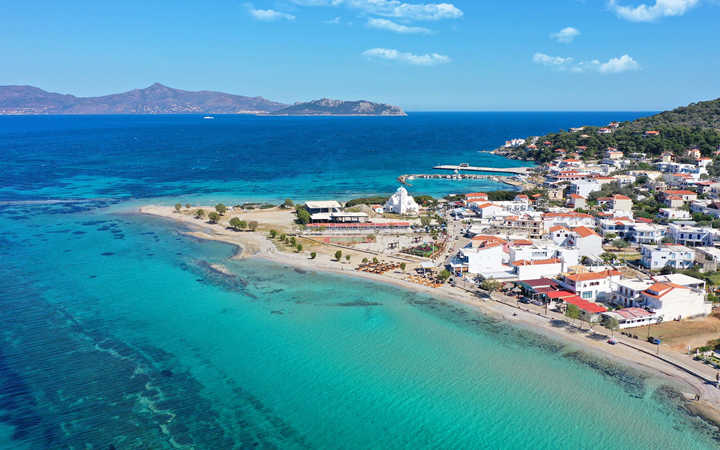The history of the island dates back centuries, when Agistri together with Aegina and the nearby islands established the Kingdom of Aegina, ruled by the mythical King Aiakos. The island has been inhabited since the 5th century BC by Peloponnese residents. According to Homer, it was the haven of the brave Myrmidons and also fought in the War of Troy. Known as Pityonisos, or the Pine Island, Agistri was also the summer residence of Aiakos.
According to Greek mythology, the goddess Aphaia hid in the local sea caves to escape from the Aeginian fishermen. The goddess Artemis, who wanted to help Aphaia, gave her flowers to decorate her head, so she wouldn’t be recognised. This is how the island got the nickname Kekryfaleia, which means ‘beautifully decorated head’.
At the end of the 17th century, Agistri was inhabited by Arvanites who settled on the shores of the island’s lake. After devastating pirate raids, the settlers deserted the area, moving further to the south and founding the village of Limenaria.
During the Greek War of Independence, Agistri fought fiercely for freedom. But the island’s true independence did not arrive until 1835, when it was declared by Royal Decree a Community with 248 official permanent residents.
Sightseeing and activities
- The Folklore Museum, which is housed in the Cultural Centre of Agistri in the village of Megalochori
- The Byzantine chapel of Agios Nikolaos on the way to Aponisos
- Limenaria, a gorgeous traditional settlement
- The village of Megalochori
- The settlements of Metochi and Skliri
- The island’s idyllic lake
- A tour around the island in a traditional wooden boat
- The sunset in Aponisos
- A day cruise to Aegina (a 10-minute boat ride)
- A cruise to the nearby islets of Metopi, Moni, Kyra, Spalathronisi and Dorousa
- A ride on the tourist train around the island’s beaches
- A visit to the island’s churches: the Zoodochos Pigi Cathedral in Megalochori, Agioi Anargyroi in Skala, Agia Kyriaki in Limenaria, Panagia in Metochi, and Agioi Pantes and Agioi Theodoroi outside of Megalochori












